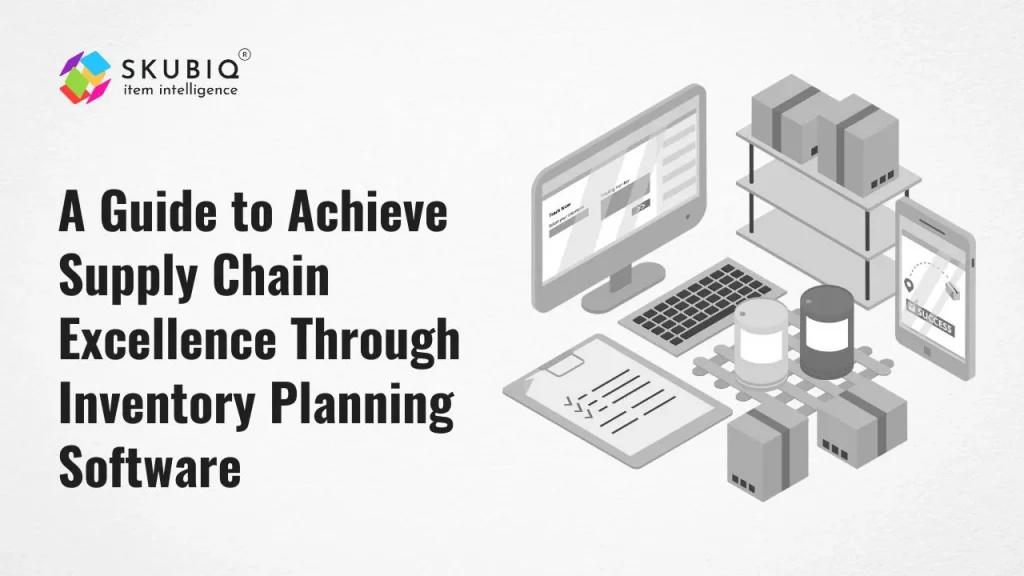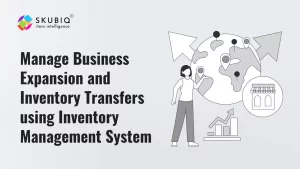In today’s fast-paced business landscape, achieving supply chain excellence is paramount for staying competitive. One key aspect of optimizing supply chain operations is efficient inventory management, and this is where inventory planning software plays a pivotal role. But how exactly can businesses harness the power of such software to enhance their supply chain strategy and drive efficiency? Let’s explore this guide to unlock the secrets of supply chain success.
1. Understanding Inventory Planning Software
Inventory planning software refers to specialized tools and solutions designed to help businesses manage their inventory more effectively. From tracking stock levels to forecasting demand, this software provides valuable insights that enable businesses to make informed decisions regarding their inventory.
2. Importance of Supply Chain Strategy
A robust supply chain strategy is the foundation of successful inventory management. It encompasses everything from sourcing raw materials to delivering finished products to customers. By aligning inventory planning with broader supply chain objectives, businesses can optimize their operations and achieve greater efficiency.
3. The Role of Inventory Management in Supply Chain Efficiency
Before embarking on a WMS system revamp, conduct a thorough assessment of your organization’s requirements, challenges, and goals. Engage stakeholders from various departments to gather insights and ensure alignment with business objectives. This assessment lays the foundation for selecting the most suitable inventory software and designing an optimized solution.
4. Leveraging Inventory Optimization Techniques
Inventory optimization involves using advanced algorithms and analytics to determine the optimal levels of inventory to keep on hand. By striking the right balance between carrying costs and stockouts, businesses can maximize profitability while ensuring adequate stock availability.
5. Maintaining Optimal Inventory Levels
Maintaining optimal inventory levels is a delicate balancing act. Too much inventory ties up valuable capital and storage space, while too little can result in stockouts and lost sales. Inventory planning software helps businesses strike the right balance by providing real-time insights into demand and supply dynamics.
6. Enhancing E-Business in Supply Chain Management
The rise of e-commerce has transformed the way businesses manage their supply chains. Inventory planning software plays a crucial role in enabling seamless integration between online storefronts and backend inventory systems, ensuring accurate inventory visibility and order fulfillment.
7. Implementing Inventory Planning Software
Implementing inventory planning software requires careful planning and execution. From selecting the right software vendor to training staff and integrating with existing systems, businesses must follow a systematic approach to ensure a smooth transition and maximize the benefits of the software.
8. Benefits of Integrated Inventory Planning Systems
Integrated inventory planning systems offer several benefits, including streamlined operations, improved visibility, and better decision-making. By integrating inventory planning with other supply chain functions such as procurement and logistics, businesses can achieve greater efficiency and agility.
9. Overcoming Challenges in Inventory Planning
Despite its many benefits, inventory planning comes with its fair share of challenges. These may include inaccurate demand forecasting, supply chain disruptions, and data silos. Overcoming these challenges requires a combination of advanced technology, strategic planning, and effective collaboration across the organization.
10. Future Trends in Inventory Management
Looking ahead, the future of inventory management is likely to be shaped by emerging technologies such as artificial intelligence, machine learning, and blockchain. These technologies hold the promise of greater automation, transparency, and efficiency in inventory planning and management.
Conclusion
In conclusion, achieving supply chain excellence through inventory planning software is not just a possibility but a necessity in today’s competitive business environment. By understanding the importance of supply chain strategy, leveraging advanced inventory optimization techniques, and embracing the latest trends in e-business and technology, businesses can unlock new levels of efficiency and profitability.
FAQs (Frequently Asked Questions)
1. What is inventory planning software, and why is it important?
Inventory planning software is a specialized tool that helps businesses manage their inventory more effectively by providing insights into demand, supply, and stock levels. It is important because it enables businesses to optimize their inventory management processes and improve overall efficiency.
2. How does inventory planning software contribute to supply chain efficiency?
Inventory planning software contributes to supply chain efficiency by enabling businesses to maintain optimal inventory levels, minimize stockouts, and reduce excess inventory. By providing real-time insights and predictive analytics, it helps businesses make informed decisions and respond quickly to changes in demand and supply.
3. What are some common challenges in inventory planning, and how can they be overcome?
Common challenges in inventory planning include inaccurate demand forecasting, supply chain disruptions, and data silos. These challenges can be overcome through the use of advanced technology, strategic planning, and effective collaboration across the organization. By leveraging the capabilities of inventory planning software and adopting best practices, businesses can mitigate these challenges and optimize their inventory management processes.
4. How can businesses integrate inventory planning software into their existing systems?
Integrating inventory planning software into existing systems requires careful planning and execution. Businesses should start by selecting the right software vendor that offers seamless integration capabilities. They should then work closely with their IT department to ensure smooth implementation and data migration. Training staff on the new software and processes is also essential to ensure successful adoption and maximize the benefits of integration.
5. What are some future trends in inventory management?
Some future trends in inventory management include the adoption of emerging technologies such as artificial intelligence, machine learning, and blockchain. These technologies hold the promise of greater automation, transparency, and efficiency in inventory planning and management. Additionally, the rise of e-commerce and omnichannel retailing is expected to drive demand for more advanced inventory management solutions that can handle complex supply chain networks and customer expectations.




